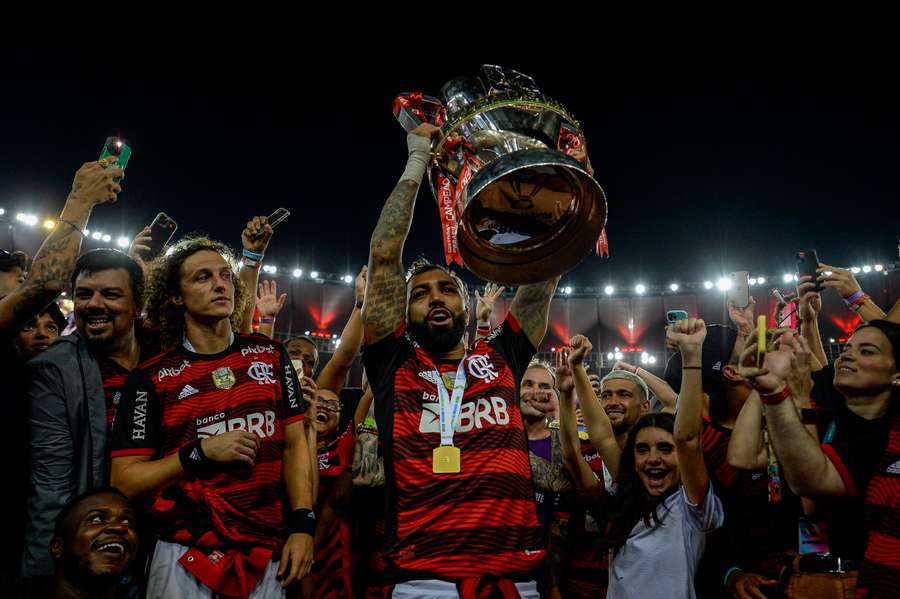Flamengo's golden generation win missing title and surpass Zico's team

The Copa do Brasil was the only domestic tournament missing from the trophy gallery built by Flamengo in the last four years. Since the arrival of the big reinforcements, the rubro-negro won the Carioca Championship three times (2019 to 2021), the Brazilian Championship twice (2019 and 2020), the Brazilian Supercup twice (2020 and 2021), the Copa Libertadores (2019) and the South American Recopa (2020), in addition to the cup lifted on Wednesday.
After equating the club's debts and gradually increasing investments in football, it was precisely in 2019 that Flamengo intensified the signing of prominent players.
That year, of those who still remain at Gávea, Rodrigo Caio, Bruno Henrique (currently injured), Filipe Luís, Arrascaeta and Gabigol arrived. Other essential pieces, such as Rafinha, Pablo Marí and Gerson, were also brought in in 2019, but have already said goodbye to the club. All of these joined important figures from the victorious trajectory who were already in the rubro-negro squad, such as Diego Alves and Everton Ribeiro, since 2017, and Diego Ribas, since 2016.
With all possible titles in the domestic territory already achieved, the generation of Gabigol and co. has one last hurdle left: the Club World Cup. The team will have another chance at the tournament if they win the Libertadores final against Athletico-PR on October the 29th. Although FIFA have yet to confirm a date, the intercontinental competition is scheduled to take place in February 2023.
The 1981 Interclub World Cup, won by Zico's generation, is to this day the greatest achievement in Rubro-negra history. In addition to the number 10, the team that beat Liverpool 3-0 in Tokyo had stars like Leandro, Júnior, Andrade and Adílio. Centre-forward Nunes, known as the "deciding scorer", scored twice in the final - the other goal was scored by Adílio.
The first golden generation of Flamengo had their first glory in the 1978 Carioca Championship, marked by Rondinelli's unforgettable goal against Vasco. Although not everyone from the 1981 team was present, a backbone with Júnior, Adílio and Zico was already formed.
From then on, in addition to the World Cup, Rubro-Negro won three other Cariocas (1979, special edition 1979 and 1981), three Brasileiros (1980, 1982 and 1983) and one Libertadores Cup (1981). It is worth remembering that the Brazil Cup was only created in 1989, and therefore did not exist at their time.
